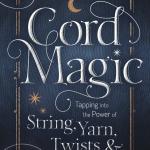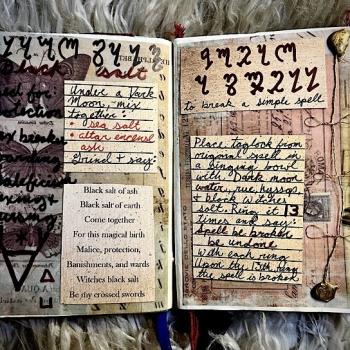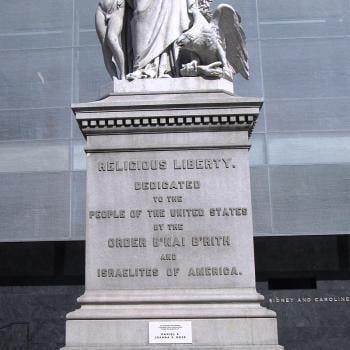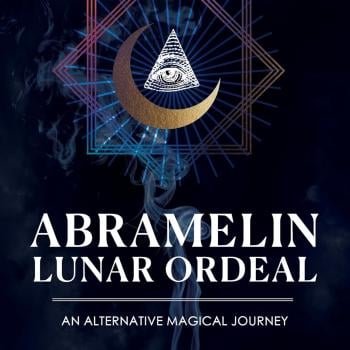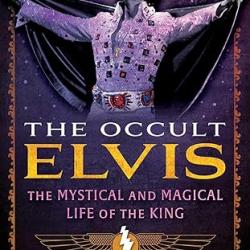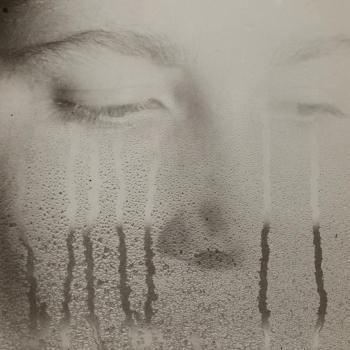Those who decide to immerse themselves in magick or witchcraft are faced with a bewildering array of choices. Is one modality superior to the others? If so, how should it be found?
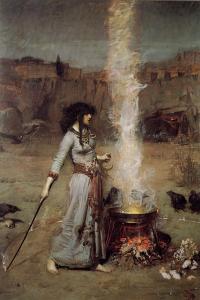
John William Waterhouse – Magic Circle (1886)
Beginning the journey by banishing fear
Think back to that scene in The Matrix when Morpheus says to Neo:
“Nobody can be told what the matrix is, you have to see it for yourself.”
It’s the same thing with the best system of magick or witchcraft, you can’t be told what it is, you need to take the red pill and experience it for yourself. Otherwise, how will you know for sure? You need to journey down the rabbit hole to Wonderland…
Some people are lucky enough to have a Morpheus character in their lives who can start them on their journey. Most, however, do not, and are dependent on clues gleaned from people they meet, books they read, online articles they stumble across.
The Chinese philosopher, Lao Tzu, recognized as the founding father of Taoism, stated:
“A journey of a thousand miles begins with a single step”.
Many are fearful of this first step, as it could be in the wrong direction.
In Liber Librae, Aleister Crowley wrote:
“Fear is failure, and the forerunner of failure: and courage is the beginning of virtue.”
To stay in one position due to a fear of making the wrong choice leads to stagnation. However, making the wrong choice leads to knowledge, as you’ll understand why it was a bad idea. Such knowledge can be used to be less likely to make a similar mistake in the future. With knowledge comes growth. So, banish fear, as it is counterproductive.
Making repeated wrong choices becomes tedious quickly, but can be overcome through planning…
Journeying through a cultural tradition
The first consideration is whether you were born into a cultural tradition that incorporates magickal practice. Belief is incredibly important, so why not take advantage of the spiritual conditioning of your upbringing by working within your existing belief structure?
Some people are born into family traditions of witchcraft such as British Traditional Witchcraft or Strega. There are also pagan traditions such as Lithuanian Romuva and Icelandic Asatru.
Some young people are the children of parents who embraced Neo-Paganism or Wicca.
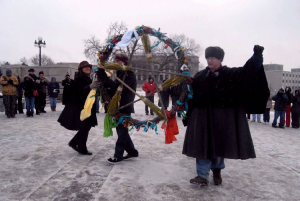
Wiccan event in Minnesota, with practitioners carrying a pentacle (2006)
There are reconstructed traditions which have brought back the religions of Britain, Greece, Rome, Egypt, Mesopotamia, Aztec, Scandinavian and Slavic countries, as well as others. Those for whom this is their cultural heritage may well find themselves being drawn in.
Hindu households are polytheistic and readily lend themselves to immersion in magick. Buddhism and Taoism also have magickal traditions.
Jewish seekers can embrace the Qabala / Kabbalah / Cabala [numerous spellings of this term] which is quite trendy at the moment with its mystical practices, including the Merkaba. Much of the popularity has come from Madonna having become a committed student of Kabbalah.
Catholic seekers can embrace the mystical writings of various saints such as Teresa of Avila (1515-1582) and St John of the Cross (1542-1591), which aren’t quite magickal, but aren’t far off. The Spiritual Exercises of St Ignatius of Loyola (1491–1556), who founded the Jesuits, have apparently been used in the past by at least one magickal order.
Seekers in the Eastern Orthodox Church can immerse themselves in the Philokalia, which while not magickal, are entry point into mysticism.
The medieval grimoires were doubtless written by Catholic priests. We know this because the priests were the only ones who could write and often the texts indicated an in-depth knowledge of Catholic traditions. They were often based on earlier texts. As these often involve working with demons, I wouldn’t recommend them for those just starting out on their journey, and I mention them for information purposes only, for former Catholics who feel drawn to them. Previously I recommended banishing fear, as it is counterproductive. Caution, on the other hand, can be very sensible…
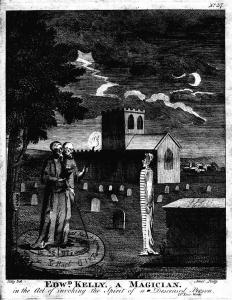
Engraving of occultists John Dee and Edward Kelley “in the act of invoking the spirit of a deceased person”; from Astrology (1806) by Ebenezer Sibly.
Islamic seekers can immerse themselves in working with the Jinn (anglicized as genie), which are “supernatural creatures in early pre-Islamic Arabian and later Islamic mythology and theology. … Since jinn are neither innately evil nor innately good, Islam acknowledged spirits from other religions, and was able to adapt spirits from other religions during its expansion. Jinn are not a strictly Islamic concept; they may represent several pagan beliefs integrated into Islam.”
The above is not meant to be an exhaustive list, but rather a starting point for those wish to explore their cultural heritage as a means of immersing themselves in magick or witchcraft.
Journeying outside your cultural tradition
Those who don’t have a cultural heritage to tap into, or don’t resonate with it have to do some soul searching.
Do you wish to journey alone or with others? Many choose to work as solitaries, but will occasionally reach out for “fellowship”, to borrow a Christian term, either online or at a local event. Thanks to the internet, you don’t need to live in close proximity to like-minded individuals, as many groups are now meeting online.
Do want want a journey which is simple or complicated? Certain paths aren’t intellectually taxing, while others are. The extensive study associated with ceremonial magick will appeal to some, but not others. Many years ago, I had the owner of an esoteric bookstore tell me that he knew of a number of university lecturers who secretly practiced Enochian Magick, as they were drawn to its complexity.
Do you want a path which is new, medieval, or ancient? Personally, I started with Golden Dawn and Chaos Magick workings which were fairly modern, but found myself being drawn to ancient systems of magick. On a related note, many Lovecraft enthusiasts are drawn to Sumerian magick as it is the oldest system which we have.
Honestly appraising your preferences can lead to what may well be the correct path for you.
Changing your path
There is a popular quote online attributed variously to the Chinese and the ancient Hawaiians:
“There are many paths to the top of the mountain … “
To which is sometimes added:
“… but the view is always the same.”
Its origin is unimportant, but its meaning is important. It doesn’t matter which path you’re on, so long as you’re moving towards the top of the mountain.
The time you spend on one path gives you lessons and skills which you can transfer to other paths. Again, we find that had we succumbed to fear, we’d still be at the base of the mountain, stagnating. This way, we can be like sure-footed mountain goats, nimbly leaping from path to another, growing in the process.
So, is there one path better than all the others?
Let me share a story. In the early 2000s, I attended a couple of Real Witches’ Balls in Columbus, Ohio. I had befriended a coven of Wiccans who wanted to attend all of my workshops. Sadly, one of my workshops clashed with theirs and they were unable to attend it. My workshop was about working with lunar energies and I gave participants the choice of which lunar deity we’d be working with – Selene, Thoth or Hekate. All of my invocations were sourced from the Greek Magical Papyri (PGM) and were devoid of any modern accretions. The participants voted for Hekate and the ritual went well. Afterwards, I met up with my Wiccan friends and they told me that halfway through their workshop a strong Hekate energy came into the room, and they realized that that was who my participants had voted for.
This was a huge lightbulb moment for me. I realized that so long as you’re sincere, it doesn’t matter whether you invoke Hekate with PGM spells, or Wiccan rites or any other modality. The same energy will come in.
In an absolute sense, no one system of magick is better than any other system. In a subjective sense, the best system of magick is the one which you resonate with, the one which you feel most comfortable with.
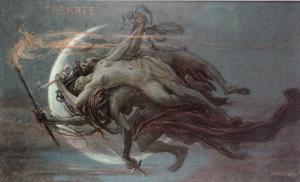
Hekate, pastel on paper by Maximilian Pirner, 1901.
Tony Mierzwicki
Author of Hellenismos: Practicing Greek Polytheism Today and Graeco-Egyptian Magick: Everyday Empowerment.

